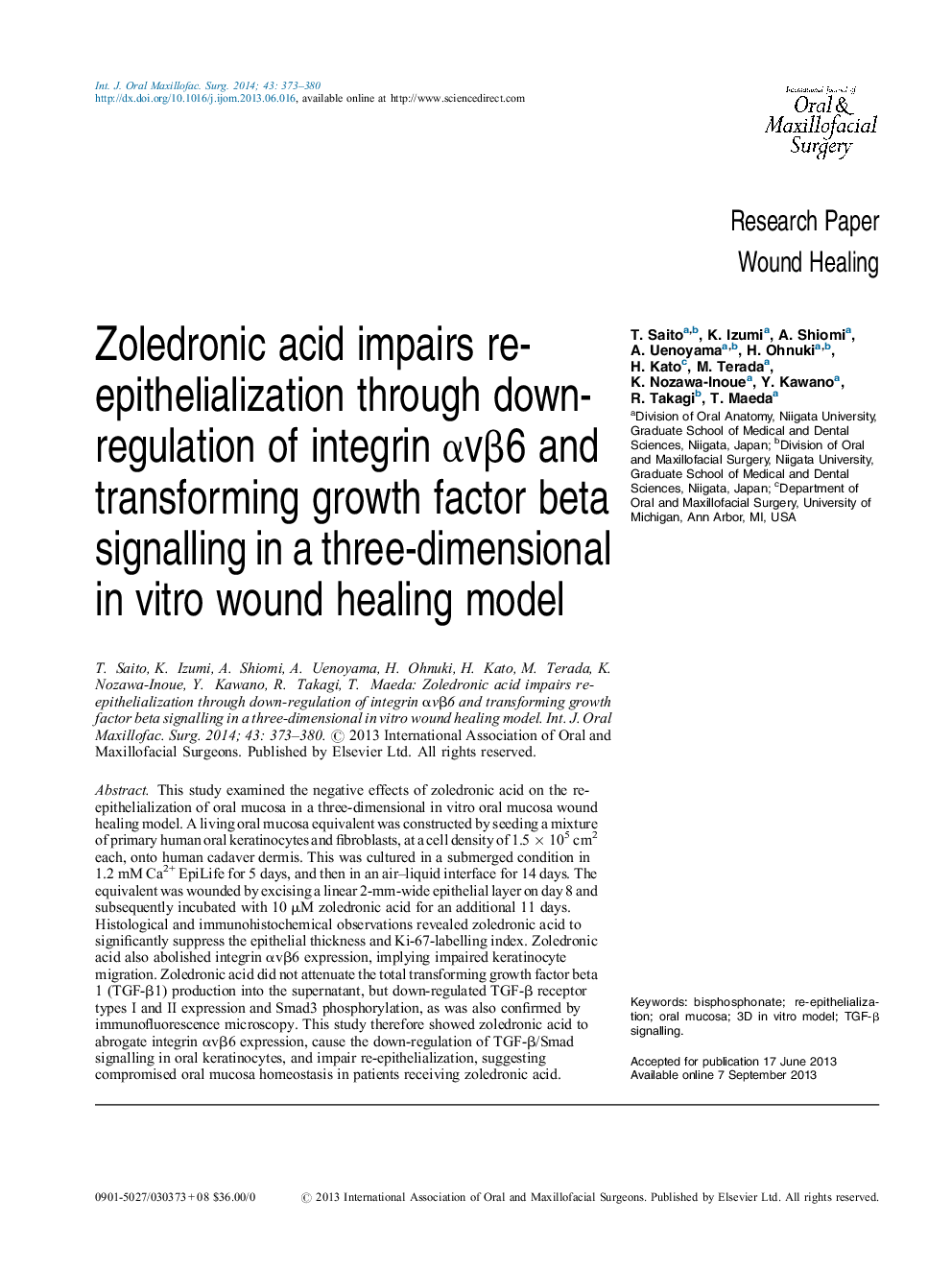| Article ID | Journal | Published Year | Pages | File Type |
|---|---|---|---|---|
| 3132348 | International Journal of Oral and Maxillofacial Surgery | 2014 | 8 Pages |
This study examined the negative effects of zoledronic acid on the re-epithelialization of oral mucosa in a three-dimensional in vitro oral mucosa wound healing model. A living oral mucosa equivalent was constructed by seeding a mixture of primary human oral keratinocytes and fibroblasts, at a cell density of 1.5 × 105 cm2 each, onto human cadaver dermis. This was cultured in a submerged condition in 1.2 mM Ca2+ EpiLife for 5 days, and then in an air–liquid interface for 14 days. The equivalent was wounded by excising a linear 2-mm-wide epithelial layer on day 8 and subsequently incubated with 10 μM zoledronic acid for an additional 11 days. Histological and immunohistochemical observations revealed zoledronic acid to significantly suppress the epithelial thickness and Ki-67-labelling index. Zoledronic acid also abolished integrin αvβ6 expression, implying impaired keratinocyte migration. Zoledronic acid did not attenuate the total transforming growth factor beta 1 (TGF-β1) production into the supernatant, but down-regulated TGF-β receptor types I and II expression and Smad3 phosphorylation, as was also confirmed by immunofluorescence microscopy. This study therefore showed zoledronic acid to abrogate integrin αvβ6 expression, cause the down-regulation of TGF-β/Smad signalling in oral keratinocytes, and impair re-epithelialization, suggesting compromised oral mucosa homeostasis in patients receiving zoledronic acid.
